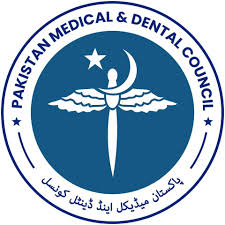Assessment of Knowledge of Pregnant Women Regarding Benefits of Breastfeeding
DOI:
https://doi.org/10.37018/JFJMU/5963Keywords:
Breastfeeding, Pregnant Women, Adequate Knowledge, World Health OrganizationAbstract
Background: Breastfeeding is commonly regarded as a cost-effective, readily accessible, and comprehensive source of nourishment for all infants. The positive impacts of breastfeeding on both maternal and infant health are widely acknowledged. Nevertheless, there is data indicating a decline in the prevalence of breastfeeding in numerous developing nations. This study evaluates the extent of mothers' knowledge and understanding of breastfeeding practices, identify gaps in information, and assess how this knowledge influences their breastfeeding decisions and behaviors, ultimately aiming to make interventions to enhance maternal and infant health outcomes. This study aims to assess the proportion of expectant mothers who understand the advantages associated with breastfeeding.
Patients and methods: A cross-sectional study was conducted at Central Park Teaching Hospital, from 1st August 2023 to 31st March 2024 in the Gynae OPD. The sample size was calculated of patients who visited Gynea OPD in LG Corporations months. The study's exclusion criteria comprised of women with psychiatric or other related conditions, while married pregnant women with no co-morbidities were included. The Arabic Breastfeeding Knowledge Questionnaire (BFKQ-A) was to assess the participants' knowledge of breastfeeding. Data was analyzed using SPSS version 25. The language of the questionnaire in Urdu for understanding of participants.
Results: A total of 205 pregnant women were included. The mean age of mothers was 29.93±5.873 years. The mean BFKQ-A score was 12.51±2.96. Among 205 pregnant women, 68 (33.2%) had excellent breastfeeding knowledge, 62 (30.2%) had good breastfeeding knowledge, 54 (26.3%) had fair breastfeeding knowledge and 21 (10.2%) had poor breastfeeding knowledge. Conclusion: The results of this research revealed a poor understanding of breastfeeding. This underscores the necessity of formulating targeted strategies and regulations to enhance breastfeeding comprehension and establish a supportive atmosphere that assists women during their breastfeeding experience.
Downloads
Published
How to Cite
Issue
Section
License
The Journal of Fatima Jinnah Medical University follows the Attribution Creative Commons-Non commercial (CC BY-NC) license which allows the users to copy and redistribute the material in any medium or format, remix, transform and build upon the material. The users must give credit to the source and indicate, provide a link to the license, and indicate if changes were made. However, the CC By-NC license restricts the use of material for commercial purposes. For further details about the license please check the Creative Commons website. The editorial board of JFJMU strives hard for the authenticity and accuracy of the material published in the journal. However, findings and statements are views of the authors and do not necessarily represent views of the Editorial Board.

















